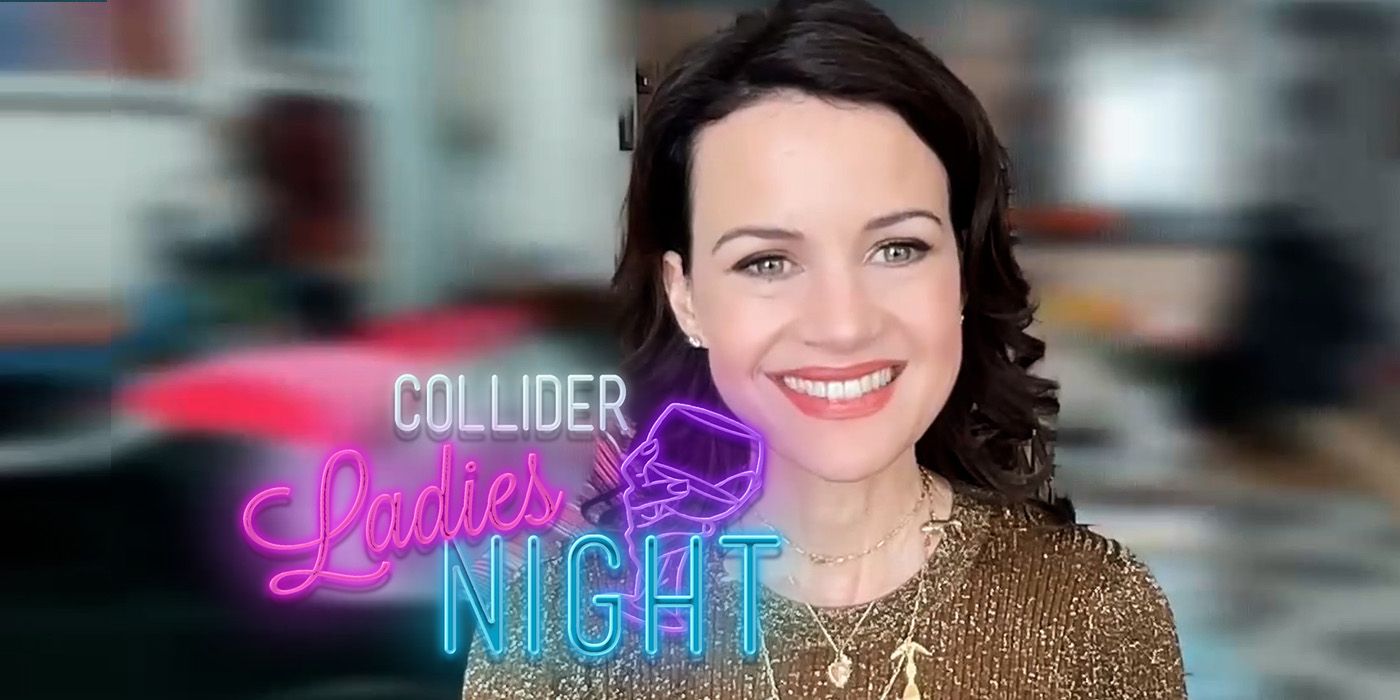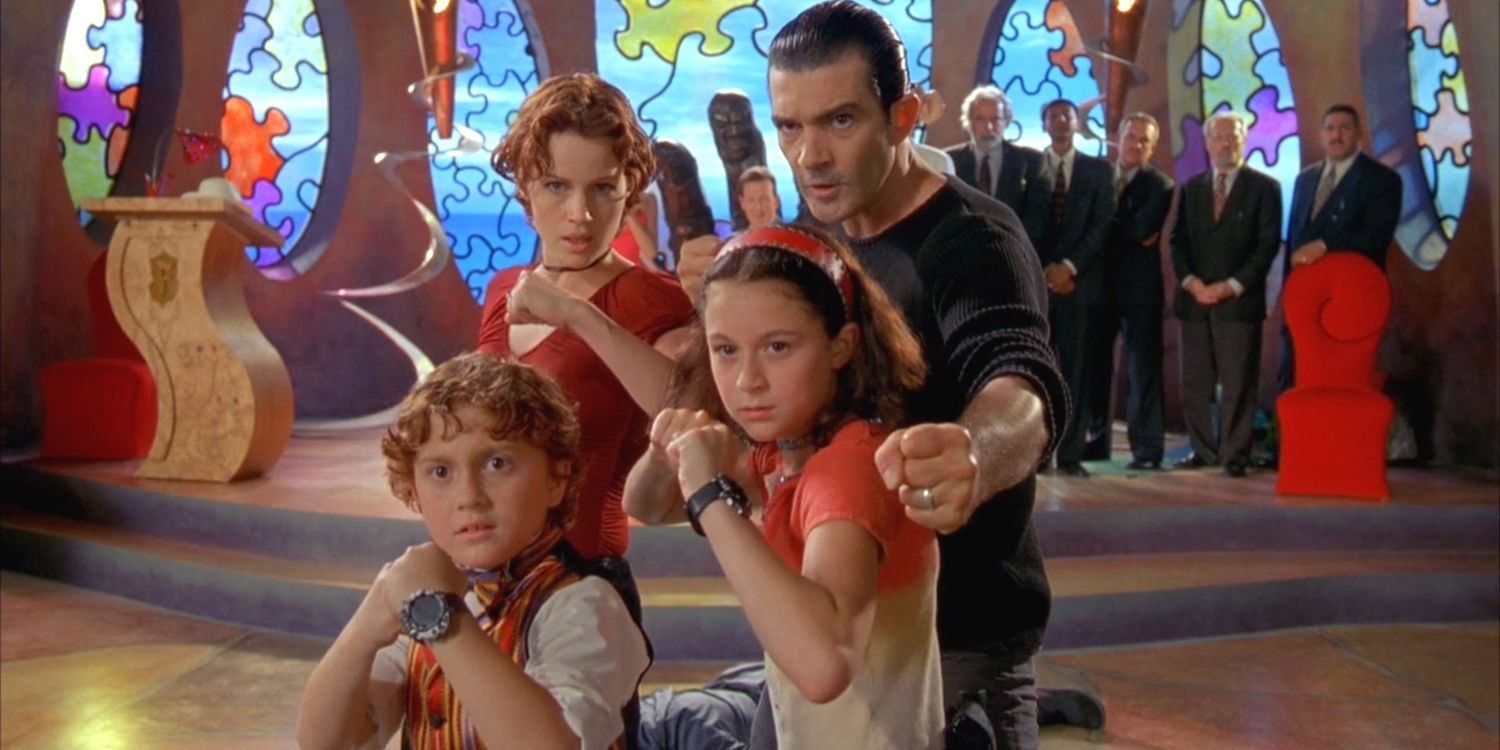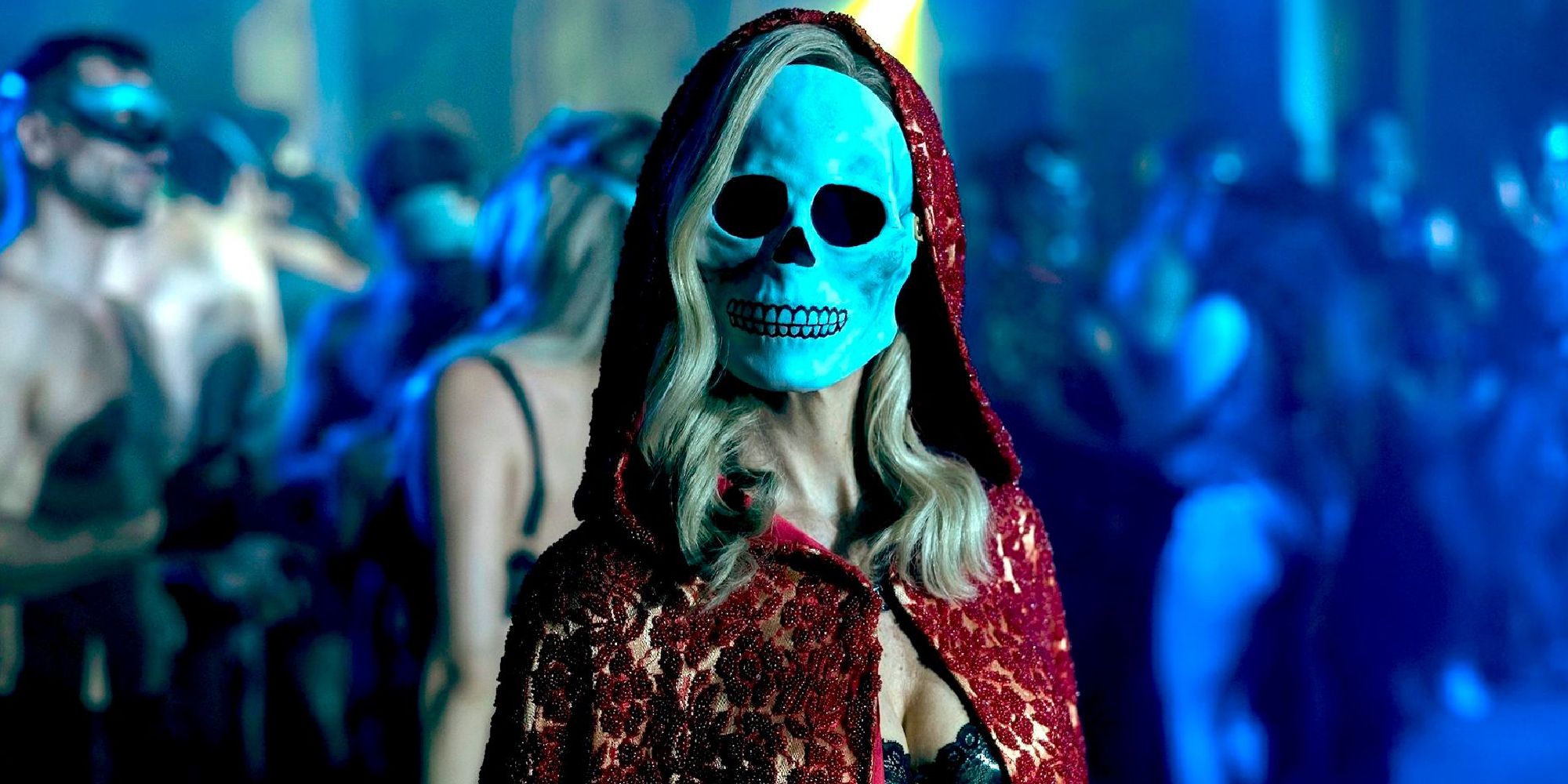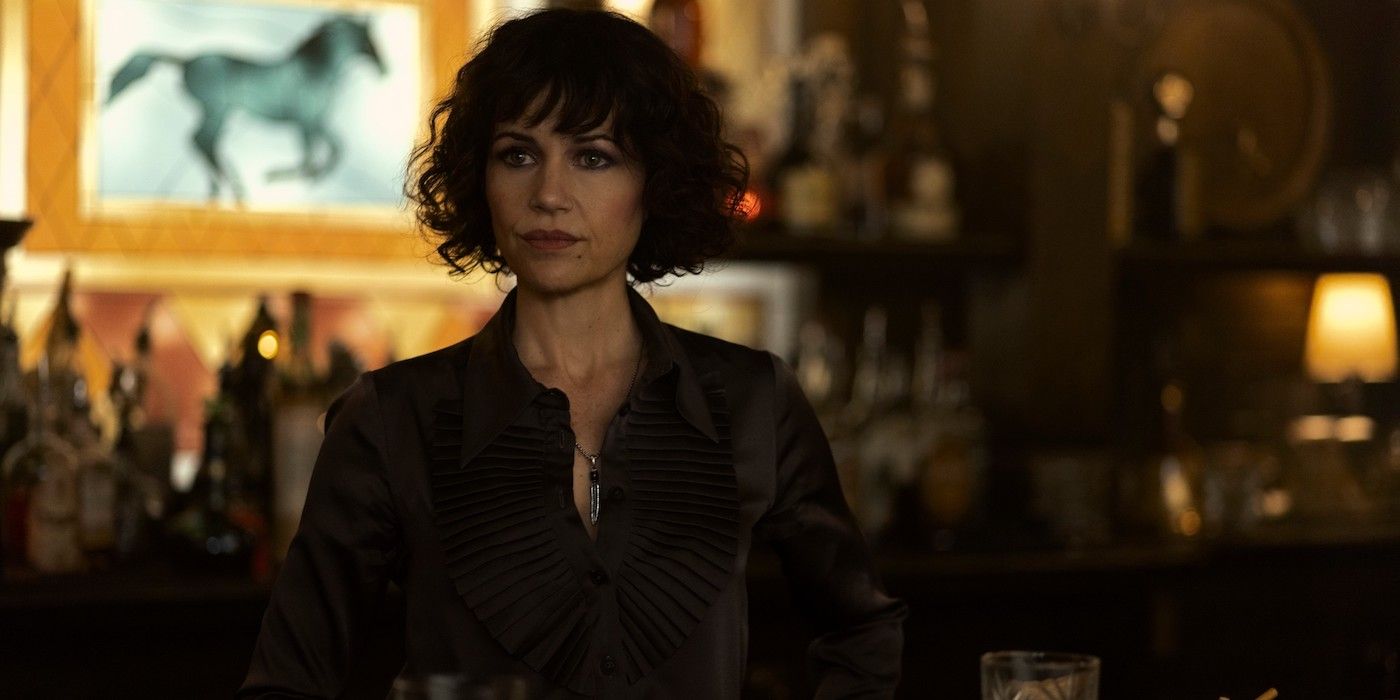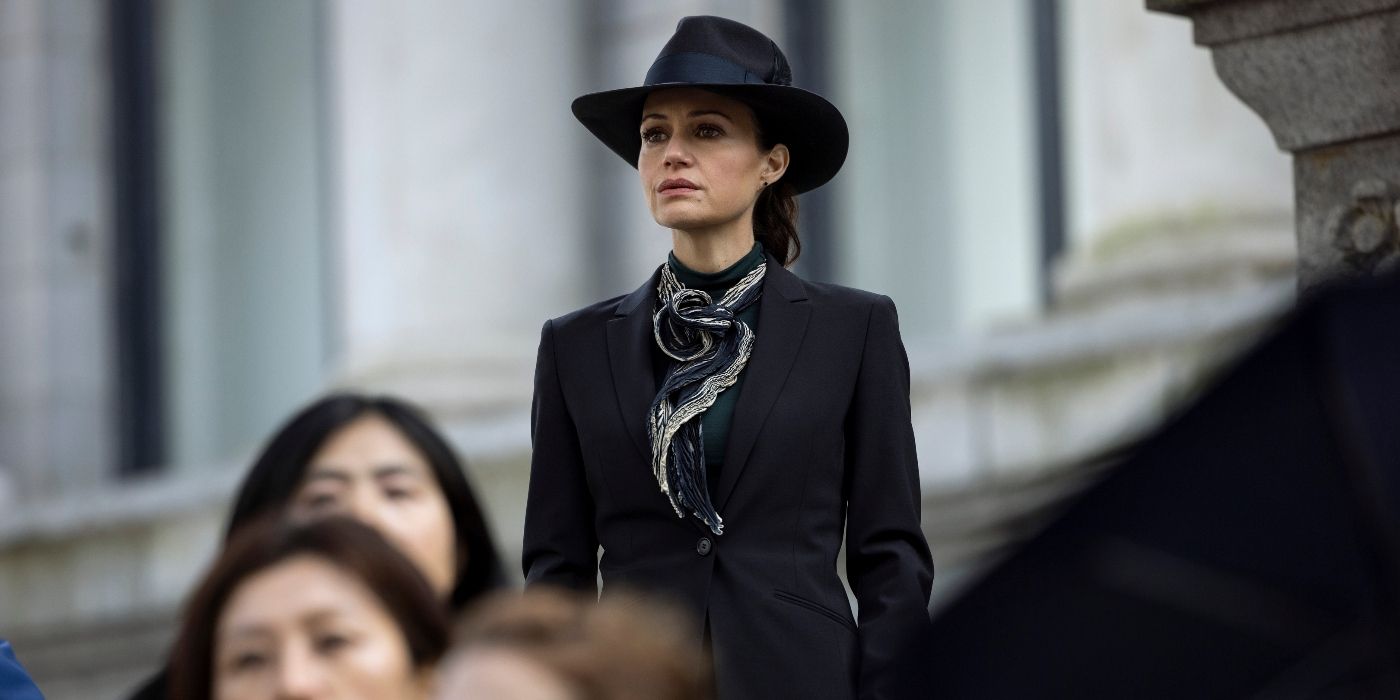The Big Picture
- Welcome to a new episode of Collider Ladies Night with The Fall of the House of Usher star, Carla Gugino.
- During her conversation with Collider's Perri Nemiroff, Gugino revisits titles like The Buccaneers, Spy Kids, The Haunting of Hill House, and more.
- She also goes into great detail describing how she brought many incarnations of Verna to life on screen in Usher.
Carla Gugino has been quietly amassing one of the most diverse bodies of work in Hollywood, and it’s about time that’s recognized. She’s got a disaster movie in San Andreas, loads of family-friendly adventure films including Race to Witch Mountain, Night at the Museum, and the Spy Kids movies, and she’s currently soaring in the horror space with projects like Gerald’s Game and The Haunting of Hill House. We’d be here all day if I listed everything, but do give her lengthy filmography a quick scan. I’d be willing to bet that in almost all cases, consecutive projects fall in different genres.
Just recently, Gugino got the opportunity to show off a good deal of her seemingly limitless range in a single project, The Fall of the House of Usher. The stellar new Netflix series from Mike Flanagan and the “Flanafamily” focuses on Roderick and Madeline Usher, the extremely wealthy and powerful brother-sister duo pushing Fortunato Pharmaceuticals up and up while leaving a trail of dark secrets in their wake. They think they are untouchable, but when their heirs start dying one by one, they're forced to revisit past choices and reckon with Gugino’s character, Verna, or rather, “The Raven.”
While Verna is often seen in human form, she’s not. As Gugino has explained in the past, “She’s not the devil. She’s not even evil.” She added, “You could say she’s the executor of fate or the executor of karma.” Just before their death, each Usher sees a manifestation of Verna, and each version is different. It’s a one-of-a-kind challenge and Gugino absolutely soars while tackling it, so much so that she was just honored with a Critics Choice Nomination for Best Actress in a Limited Series.
In honor of that accolade, the success of The Fall of the House of Usher, and everything Gugino’s accomplished in film and television thus far, she joined me for a Collider Ladies Night conversation and offered up a closer look at how she did what many strive to do in Hollywood — avoid being “boxed in” and build a career with a wealth of unique creative opportunities.
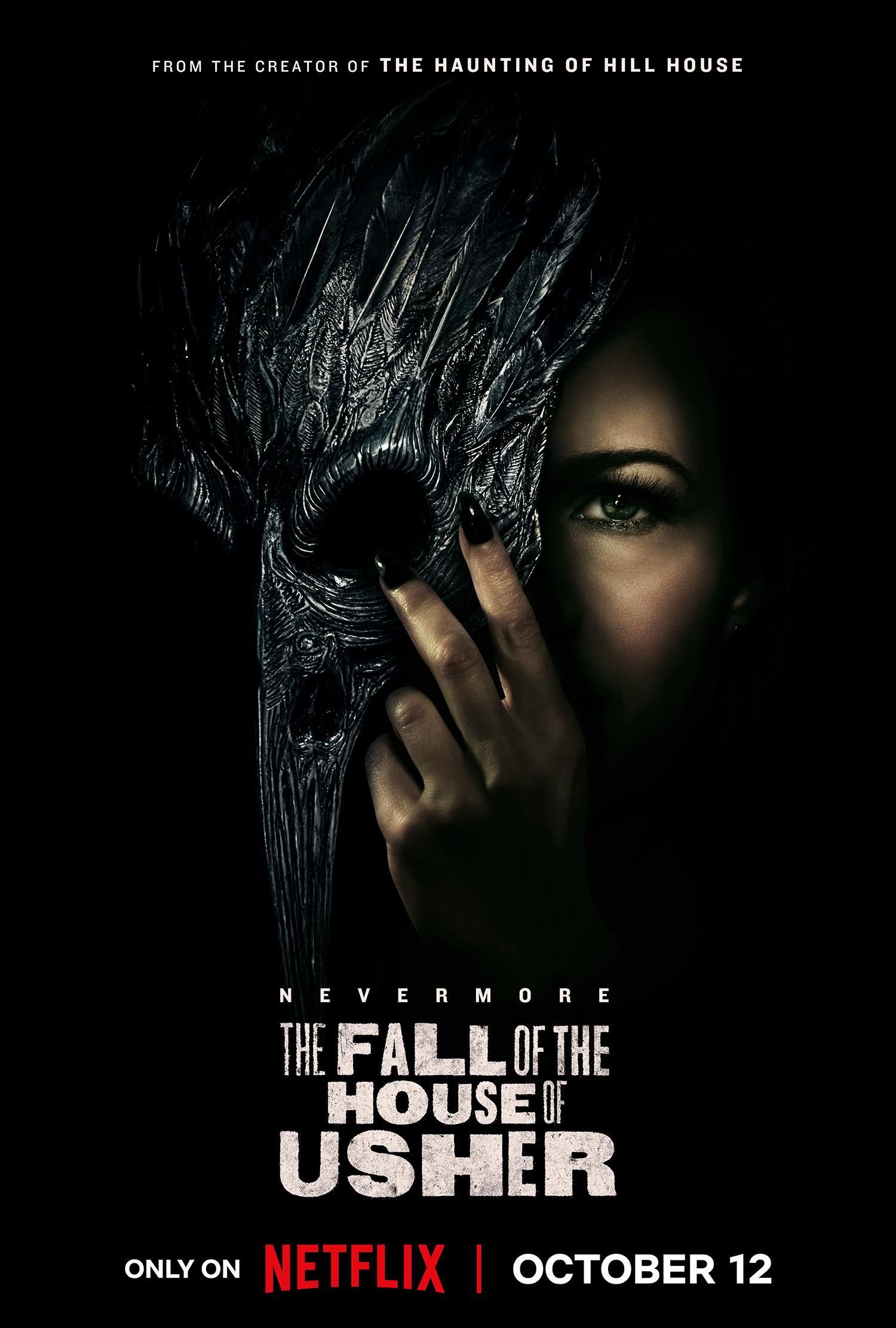
The Fall of the House of Usher
Siblings Roderick and Madeline Usher have built a pharmaceutical company into an empire of wealth, privilege and power; however, secrets come to light when the heirs to the Usher dynasty start dying.
- Release Date
- October 12, 2023
- Creator
- Mike Flanagan
- Cast
- Carla Gugino , Willa Fitzgerald , Mary McDonnell , Kate Siegel
- Studio
- Netflix
Gugino noted that she made a conscious decision to do whatever it takes to have variety in her work at a young age, even if that choice came with some pushback. She explained:
“At the time, there were many people who were super successful that I wanted to be like that I thought, ‘Oh, I want their career,’ or this and that. And all of a sudden I thought, ‘You know, what I really want is a really long career, and I want to be doing this until I die, and I want to not have people know me so much as only one thing because then it precludes you from disappearing into another part.’ I got, really, a lot of pushback about it just from people that I worked with and Hollywood in general because it made me confusing to people, to be the mom in Spy Kids and then the lesbian parole officer in Sin City.”
The key to breaking through that confusion? Finding collaborators that understood that “actors by nature are transformational.” Here’s how she put it:
“Somebody, for example, like Mike Flanagan, like Sebastian Gutierrez, like Robert Rodriguez, I can name many people that I have worked with that understand — and that's why I love them as filmmakers — that actually, actors by nature are transformational. There are certain movie stars that all of us love to just go watch be themselves on screen and that is amazing, and that's a rare confluence of elements. But I really wanted to be able to disappear into a character. I could have become famous much earlier had I made different decisions in that way. And I don't think it was until about 10 years ago that it became recognized as a body of work as opposed to, 'Oh wait, who is she? I don't quite understand how we can fit her into something.’”
Carla Gugino Sacrificed Fast Fame for Longevity and It's Paying Off Big Time
What happened about 10 years ago that made that difference? Gugino insisted it wasn’t a single project, but rather, a string of titles that made it undeniable that she should be considered for any type of role. She began, “I think Entourage made such a big splash, and then San Andreas was like a whole different kind of action movie scenario.” From there, she credited her theater work and the fact that she was so enthusiastically welcomed into that community:
“For whatever reasons, I was so gratefully embraced by that community and so that, I think, allowed people to go, ‘Oh! I think there's an unfair idea about actors that start in LA and film and television actors, and that there's not necessarily that kind of work ethic that comes from theater.’ It felt very gratifying to me to just have that aspect dispelled, whether it was my own thinking or sort of true.”
Gugino continued by listing Jett, Gerald’s Game and Hill House before noting, “I think all of that together, people were like, ‘Oh, I'm getting it now, and maybe we can throw anything her way,’ and that's pretty much what took me over 30 years to try to get people to do, because that's all I want is opportunities to play great characters with people I respect.”
Gugino has had a number of opportunities that fit that description, but nothing quite like her character in The Fall of the House of Usher. Gugino manages to find that pitch perfect balance of ensuring each incarnation of Verna feels different and specific to the person seeing her, but while also portraying them as a singular entity, one with a particular set of rules and an immeasurable amount of experience executing them.
An invaluable resource and creative partner when crafting each version of Verna? Iconic movement choreographer Terry Notary who delivers a staggeringly captivating performance in The Square and is renowned for his stunt work and skillset using performance capture technology.
Flanagan had worked with Notary in the past and suggested he might be a good collaborator for Gugino while working on this character. As one might expect, they spent a good deal of time working on how Verna would reflect particular animals like the raven, the cat and, of course, the primate. But, each incarnation also demanded some key subtleties to ensure that each version of Verna had great depth.
“One thing that you'll notice about the raven throughout, I think it manifests quite a bit in the bartender and then also in her later incarnation when she's the most like herself human-wise, meaning in Episode 7 and 8, you'll get a lot of wingspan, and even [with] chairs and all of the wardrobe. So there was definitely the notion that she also just doesn't exist in a plane of me and you. She’s very, everything in the eyes. Everything is this very inclusive, she's listening and receiving all at the same time.”
Gugino also took a moment to highlight the work that went into creating the heart patient version of Verna who’s heavily featured in Episode 5, “The Tell-Tale Heart.” She explained, “I really wanted her never to be able to breathe properly, and so he helped me modulate how much or little was gonna read with that.”
Gugino continued by pinpointing why she and Notary made such a great team:
“I think we were a really good combo because my work generally comes from the inside out. I sort of find where I'm coming from and then the physical manifestation of that, and his work is very much — it's not like it’s from the outside in, it's just that he's a keen observer and, so physical markers and behavior is so his sweet spot. So for us, it was a really natural combination and we were both, I think, very excited by each other's work. I tend towards possibly too subtle in certain [ways]. I'll never want to overdo something, so it was really good for me because he would really push me to the limit with some behavior, and then I could always dial it back, but I knew where I could go and not have it be too much.”
The Two Times Verna Isn’t Impartial in 'Fall of the House of Usher'
In addition to the expertly executed physical components of the character, Gugino also benefited from some exceptional writing and then also, her personal ability to breathe life and great passion into it. She’s got a number of extraordinary monologues throughout the show, but the one I opted to focus on is my favorite of the bunch — Verna's conversation with Lenore (Kyliegh Curran) in Episode 8, “The Raven.”
After loads of diabolical behavior and gruesome death scenes, then we get this beautifully tender moment that highlights a quality that, I think, one can always feel in Verna, but one that doesn’t show its full force until this moment: Verna is a deeply loving being with a great appreciation for the power of human kindness.
“I wept when I read that scene in the script. I felt like, for Verna, the key was the gift I can give you is for you to know that your decency, your big heart, your authenticity will have ramifications that you will never know. So you've witnessed this family in the same way that the deal that they made with Verna is something that has horrible ramifications for a very long time. You are the opposite. I tried my hardest to not have any emotion come out in that scene, and it just proved impossible. Thankfully I was able to not sob, but I did feel like this is the time when Verna — I think that and then the flip side with Henry [Thomas]'s character in “The Pit and the Pendulum” when she talks about the pliers, I think those are the two times where she couldn't be impartial. And that's so fun. It's so fun to make rules which is, I felt like Verna didn't have human emotion and she doesn't work with the same moral compass as we do, so she doesn't think of ‘good’ and ‘bad,’ and any of that stuff. You know, crime and punishment. It’s a much different kind of deal she's working with. But I love that I made those rules and then there were a couple of scenes where I couldn't not break them, and those scenes seem to be the ones that it became clear that, ‘Okay, we need to see a little bit [of] the other side of her,’ and people really responded to those in particular.”
Carla Gugino's Critics Choice Nomination Marks Her First Major Awards Season Nod
There was certainly a big response to those two scenes, but also to Gugino’s work in The Fall of the House of Usher overall. After dozens and dozens of credits and nearly 40 years in Hollywood, Verna finally earned Gugino her first major award nomination, a nomination for Best Actress in a Limited Series at the Critics Choice Awards. No, artists don’t make films and shows for accolades, but such an achievement is important to celebrate, so I concluded by asking Gugino what this nomination means to her. Here’s what she said:
“I will say that we certainly don't do it for that, and I’ve learned that in a very tangible way because, for whatever reasons, no matter how many times people have been so kind to say, ‘You'll get nominated for this,’ or, ‘You won't just get nominated, you'll win for this!’ And I've gotten lots of beautiful critical response and accolades, but this is the first major award I have ever been nominated for in film or television in an almost 40-year career, so it’s actually really significant to me.”
Gugino went on to explain how challenging it can be to get that magical combination of working on a great project that also goes on to get the attention it deserves:
“I think it's so rare too that you get to do something where you are so proud of the piece as a whole, of everybody involved, of this character. I will never get an opportunity — I've never had one before, I probably will never get one like this again. It's such a unique opportunity with Verna and these incarnations of her. And also, then that the show is super successful. So often I feel like you're in an instance — just in this last year I did a show called Leopard Skin, which I'm super proud of and is amazing, and it's on Peacock, but I think they just did not know what to do with it. It should have been on HBO. By the way, if nobody has watched Leopard Skin, it's super awesome, and I love it so much. But you know, that's a show that, for example, just didn't have the eyes on it to get the attention that I think that it deserved, though it was very well reviewed etc. But I feel like this has that magic combo where you do something you're really proud of — and I’ve done huge movies that have done really, really well, but the role has been fine, you know? So this is a magic combo and I couldn't be more grateful.”
Eager to hear more from Gugino on her journey in film, television, and theater thus far? You can watch our full 54-minute conversation in the video at the top of this article, or you can listen to it in podcast form below:
The Fall of the House of Usher is available to stream on Netflix in the U.S.

